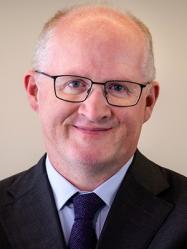

10:00 am EDT - 11:00 am EDT
Past Event
10:00 am - 11:00 am EDT
1775 Massachusetts Avenue N.W.
Washington, DC
20036
The European Central Bank (ECB) is facing significant challenges that are testing the potency of monetary policy. Confronting a slowing economy and an inflation rate persistently below its target of “close to but below 2 percent,” the ECB, over the objections of some of its top policymakers, recently cut a key interest rate to -0.5 percent and restarted its quantitative easing (QE) program of bond buying. Is monetary policy running out of ammunition in Europe? Is Europe heading for a recession? What will it take to get the Eurozone economy growing sustainably? What have we learned about the impact of negative interest rates and prolonged QE? How does the ECB respond to complaints from Germany about the impact of low rates on savers? What are the implications of Brexit for the Eurozone?
On October 16, Philip Lane, a member of the ECB’s Executive Board and its chief economist, discussed these and other questions at a Hutchins Center on Fiscal & Monetary Policy event at Brookings. Before joining the ECB’s Executive Board in June 2019, Lane served four years as governor of the central bank of Ireland. A Ph.D. in economics from Harvard, he was previously on the faculty at Trinity College, Dublin.





Sam Boocker, Alexander Conner, David Wessel
April 25, 2024

Homi Kharas, Charlotte Rivard
April 16, 2024

Homi Kharas, Vera Songwe
April 15, 2024